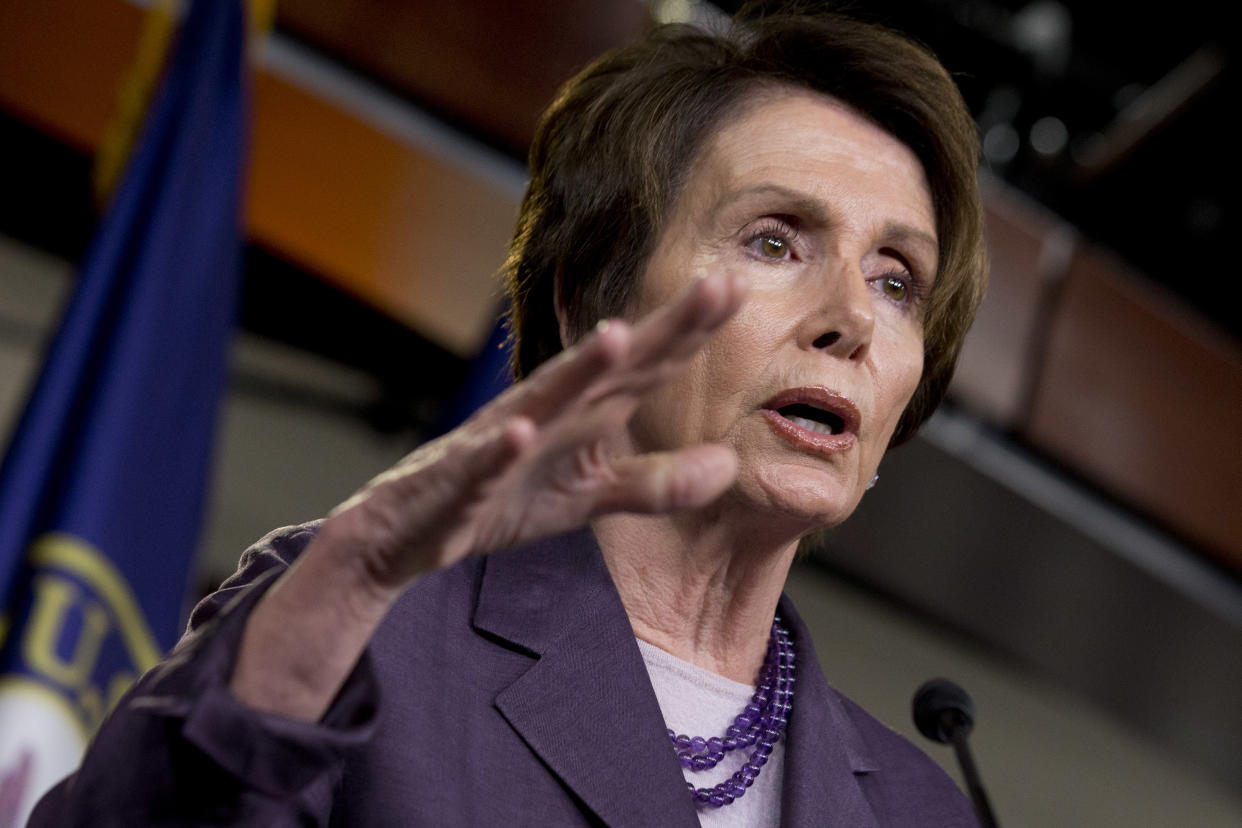Benghazi hearing puts Democrats in a tough spot
Should they appoint members to the select committee or not?

House Democratic leaders have been unstinting in their criticism of the select committee established this week to investigate the aftermath of the 2012 attack on an American compound in Benghazi, Libya. Now they are facing a touch choice about whether to join it, cautiously weighing which strategy would be riskier politically and whether their instinct to boycott the select committee might just give it more power in the end.
Democratic leaders have called the new committee “a political ploy,” a “stunt,” a “sham,” a “waste of taxpayer dollars” and, in the words of White House spokesman Jay Carney, “a blatantly political and partisan effort.” This week, two arms of the party, the Democratic National Committee and the Democratic Congressional Campaign Committee, launched a coordinated messaging blitz to undermine the committee and cast Republicans as political opportunists who have established the select committee only because of their interest in raising money and exciting the GOP base before the 2014 midterm elections.
Should Democrats now take part in this thing they view as a nonserious exercise in pandering to the right? House Democrats met behind closed doors Friday morning to discuss their options, but emerged with no clear answer on how to proceed.
In the case of reopening an investigation into the events of Sept. 11, 2012, in Libya, Democrats are stuck in a damned-if-they-do, damned-if-they-don’t scenario. That’s left the caucus torn on what to do.
There’s a vocal chorus of Democrats urging Minority Leader Nancy Pelosi to boycott the committee altogether. Appointing members to the committee would lend credibility to the investigation, they fear, and it would force Democrats to risk being pawns in a Republican political game.
“If you’re going to have a hanging,” said Assistant Democratic Leader James Clyburn, one of the leading opponents to participating, “don’t ask me to bring the noose.”
Democrats point to the fact that four other bipartisan committees have already investigated the Benghazi attack and that one of those lines of inquiry — the Government Oversight Committee’s investigation — remains ongoing.
But if Democrats don’t appoint panel members — the resolution the House approved Thursday night would give them five slots on the committee — they will forfeit having any authority over the process and the messaging from each hearing. Not participating would grant Republicans monopoly control over the tone of the hearings and the information provided during the proceedings. Republicans would be the only lawmakers posing questions to the witnesses. Democrats would risk of having entire news cycles dominated by Republican-driven messaging.
"We need to be there to be sure that when Republicans abuse their power, point it out then and there that they're abusing their power," California Democratic Rep. Henry Waxman told National Journal.
Democrats, then, face a choice: Risk legitimizing a Republican-led hearing they think is a charade, or grant total control of the content and the message to Republicans. It’s a decision they’re not ready to make.
“We need to make a judgment about how dangerous they can be about their misrepresentation of the facts of the committee,” Pelosi told reporters Friday after her meeting with the caucus.
For now, Democratic leaders say they will withhold judgment until they’re satisfied with negotiations with Boehner over how the hearings will be conducted. Members of Pelosi’s staff have been in ongoing talks with Boehner’s over the role the Democratic members would play if they chose to join the hearing. At issue, Pelosi said Friday, is whether Democratic committee members will have a say when it comes to issuing subpoenas, calling witnesses and releasing documents to the public. Pelosi said she would base her decision on the outcome of talks with Boehner over the next several days.
This week’s round of talks did not bode well for a speedy resolution. Pelosi on Friday rejected a proposed “Memorandum of Understanding” from Boehner’s staff that outlined ground rules, calling them “fundamentally unfair” in a letter sent to Boehner. Pelosi’s letter indicated, however, that she would be open to further negotiations.
Republicans, meanwhile, aren’t waiting for Democrats to make a decision. On Friday, Boehner announced the names of the seven Republicans who had been appointed to the committee, which will be chaired by South Carolina Rep. Trey Gowdy, a 16-year veteran prosecutor. The other members include Kansas Rep. Mike Pompeo, Illinois Rep. Peter Roskam, Indiana Rep. Susan Brooks, Ohio Rep. Jim Jordan, Alabama Rep. Martha Roby and Georgia Rep. Lynn Westmoreland.
“I expect this committee to carry out an investigation worthy of the American lives lost in Benghazi,” Boehner said in a statement. “I also urge my Democratic colleagues to treat this tragedy with the proper respect and appoint members so that we can finally, on a bipartisan basis, get answers, provide accountability, and help deliver justice.”



